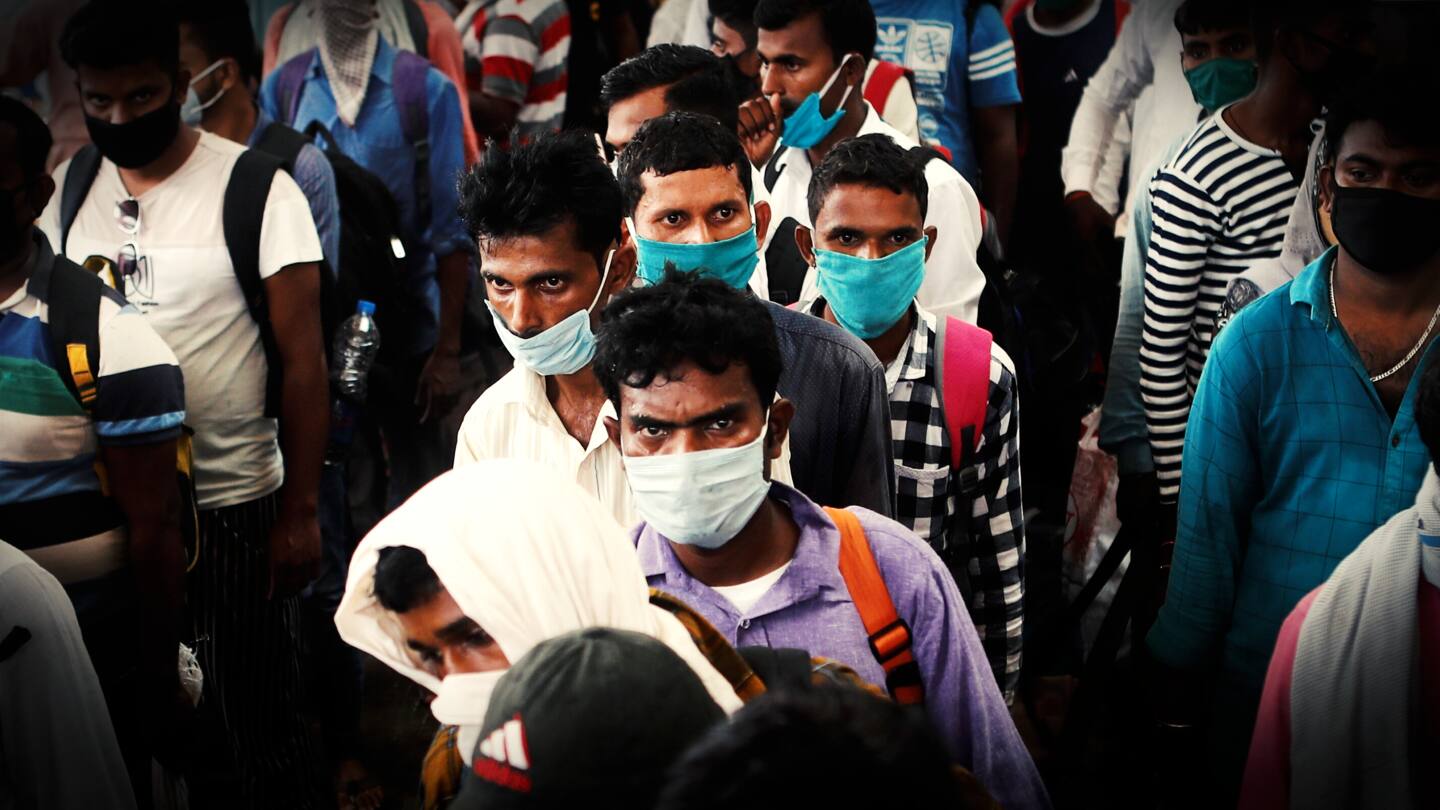
Will Delta+ cause third wave? Government's expert panel chief answers
What's the story
As the second wave of COVID-19 is receding in India, several experts have warned that a third wave is imminent and it might hit the country sooner than expected.
The emergence of the 'Delta' variants has also only fuelled anxieties, with many expecting a worse third wave.
Here's what National Technical Advisory Group on Immunisation (NTAGI) chief Dr. NK Arora had to say.
Details
'Delta+ can't be linked to third wave yet'
Speaking to PTI, Dr. Arora said that the 'Delta-Plus' variant (AY.1) cannot be linked to the third wave yet.
He said, "Waves are linked to new variants or new mutations so there is a possibility as this is a new variant, but whether it will lead to a third wave it is difficult to answer as it will depend upon two or three things."
Factors
'If many infected already, third wave may be less severe'
One factor impacting the third wave is the proportion of the population infected during the second wave, Dr. Arora said.
"If a large proportion is infected (in the second wave of COVID-19), then in the next wave, people can develop a common cold-like illness, but may not develop a serious or fatal illness," added the NTAGI chief.
Second wave
Over 50% of all infections occurred during second wave
Notably, India's second wave of COVID-19 has been described as the worst one any country has seen.
India reported a record number of 4.14 lakh infections on May 7, while the single-day death toll crossed 4,500 in late May.
Through April and May, India rapidly added 1.6 crore infections (53% of all infections since the pandemic began) and 1.68 lakh deaths (42.5%).
Factors
Vaccinations, COVID-appropriate behavior to impact third wave
Among other factors, Dr. Arora mentioned vaccinations and COVID-appropriate behavior.
Dr. Arora said COVID-19 vaccinations should continue at a rapid pace, adding that "even a single dose is effective and the way we are planning, if we rapidly immunize, then the possibility of a third wave becomes very less."
Strict adherence to COVID-appropriate behavior—masks, physical distancing, etc.—remains pertinent, he said.
Variants
Are Delta and Delta-Plus variants more infectious?
The highly transmissible Delta variant (B.1.617.2)—first reported in India—has been detected in over 80 countries and has forced several of them to reimpose lockdowns.
It was the reason behind India's second wave, as it also shows some degree of evading vaccine-induced immunity.
For Delta-Plus—which is newer—there is not enough data to support any claims about immune escape or transmissibility.